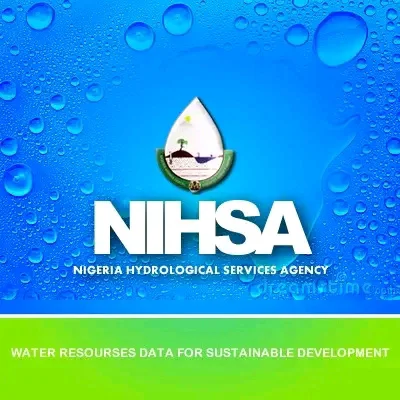The Nigeria Hydrological Services Agency (NIHSA) stands at the forefront of water resource management in Nigeria, ensuring the sustainable development and utilization of the nation's water assets. Understanding its roles and functions is key to appreciating its impact on environmental sustainability and resource management. This write-up addresses some of the most frequently asked questions about NIHSA, providing insight into its core functions, objectives, and leadership.
1. **What is NIHSA?**
NIHSA is an acronym for the agency known as the *Nigeria Hydrological Services Agency*. It is an agency under the Federal Ministry of Water Resources and Sanitation.
2. What are the 'hydrological services' of NIHSA?
Hydrological services include information on river or stream flow, groundwater fluctuation, surface and groundwater (level and quality), aquifer study and investigation, salinity studies and management, flood forecasting, and other facilities furnished, issued, or provided in connection with hydrological activities. (Hydrology is a field that deals with the water-related phenomena of the atmosphere, earth surface, as well as underground.)
3. When was NIHSA established and for what purpose?
NIHSA was established in 2010, pursuant to the enactment of the Nigeria Hydrological Services Agency (Establishment) Act, 2010.
Its purpose lies in its vision to create a dynamic and advanced hydrological service with capabilities of facilitating and supporting the harnessing, development, and management of Nigeria's valuable water resources in a sustainable manner.
The mission of NIHSA is to provide information on the status and trends of the nation's water resources, including its location in time and space, extent, dependability, quality, and the possibilities of its utilization and control, through the provision of reliable and high-quality hydrological data on a continuous basis.
4. What are the core functions of NIHSA that distinguish the agency from all others?
The functions of NIHSA are as follows:
- Advise the Federal and State Governments on all aspects of hydrology;
- Prepare and interpret Government policies in the field of hydrology;
- Issue forecasts for floods;
- Promote general hydrological services and activities in agriculture, drought, and desertification;
- Provide hydrological services in operational hydrology and water resources activities;
- Collect, process, and disseminate all hydrological data and information within and outside Nigeria;
- Hydrological data archiving;
- Ensure uniformity in hydrological equipment and hydrological assessments;
- Ensure that international best practices in hydrological operations are maintained;
- Conduct training and research, particularly in the field of surface and groundwater hydrology and other related areas of hydrology;
- Provide consulting services in hydrology to the public;
- Monitor all hydrological activities including groundwater pollution through industrial, commercial, and agricultural activities;
- Establish stations for hydrological observation;
- Carry out activities to improve the conveyance of water in river channels including monitoring of the sediment load;
- Carry out geophysical, groundwater investigations to site groundwater development projects, dam foundation, and saline water intrusion;
- Engage in other activities as are necessary and expedient for the full discharge of any of its functions.
5. Who is the current DG of NIHSA?
The Director General of NIHSA is Arc. Umar Ibrahim Mohammed, a renowned visionary of impeccable intellect and professional qualifications. He is the Chief Executive Officer responsible for the day-to-day administration of the agency. Under his able leadership, the agency is being transformed and repositioned for phenomenal growth and impact through effective planning, strategic collaborations, and the instrumentality of a competent team of staff and aides working together under his tutelage to efficiently accomplish the goals and functions of NIHSA.
In summary, NIHSA plays a pivotal role in shaping Nigeria's water resource management, contributing to national development through its hydrological services. Under the guidance of Arc. Umar Ibrahim Mohammed, the agency continues to evolve, setting benchmarks in hydrological practices and ensuring that Nigeria's water resources are effectively monitored, preserved, and utilized for the benefit of all.
Tags
News

